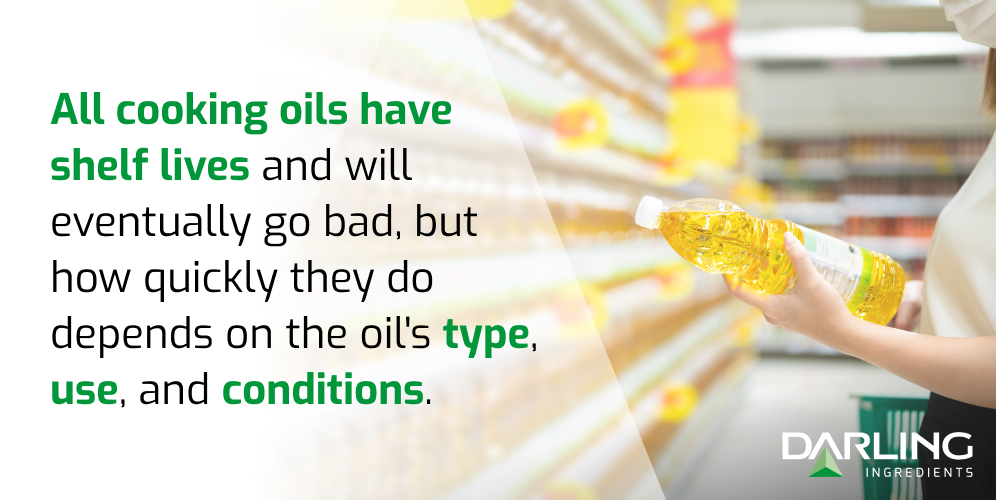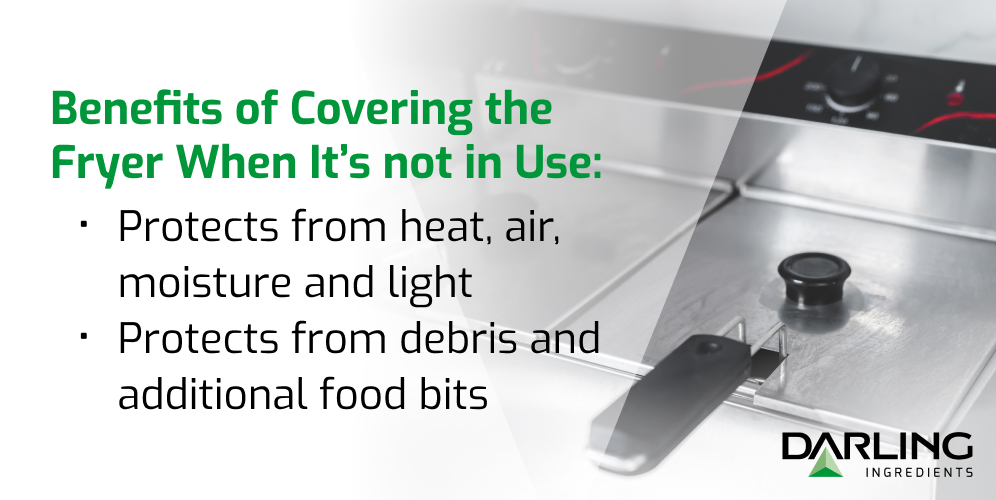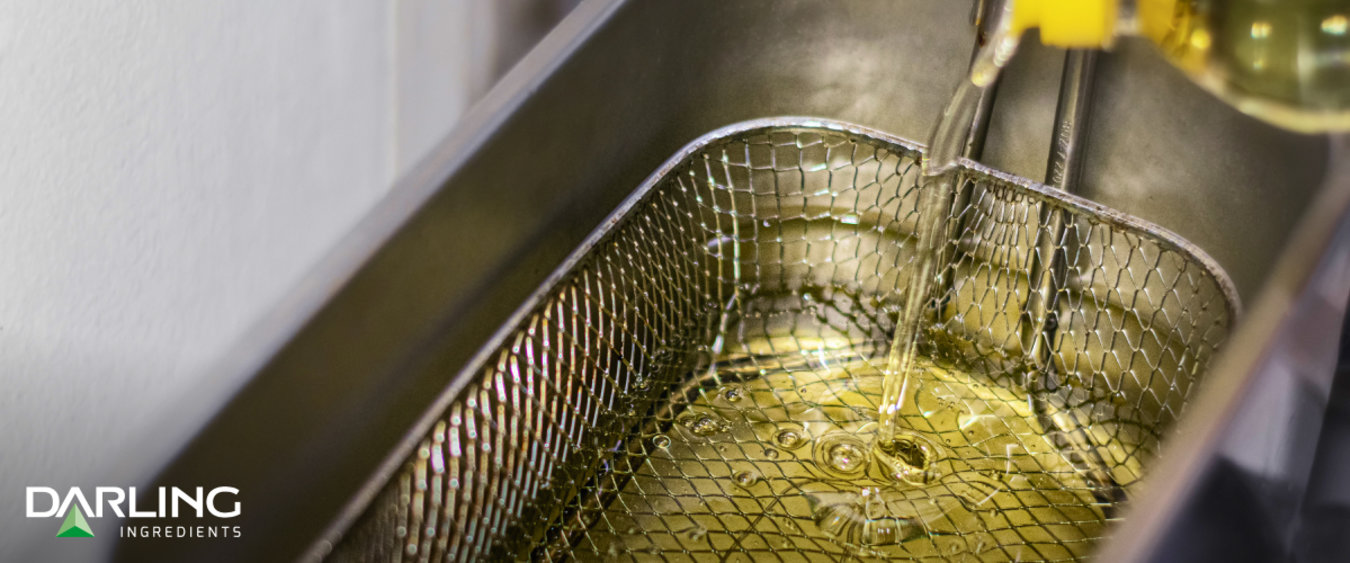Does Cooking Oil Go Bad?
The short answer to this question is yes. Many people mistakenly believe that oils last forever. However, expired oils have the potential to make people sick.
All cooking oils have shelf lives and will eventually go bad, but how quickly they do depends on the oil's type, use, and conditions. Luckily, you can prolong the lifespan of cooking oil with a few safe storage and filtering practices.

How to Tell if Your Oil Has Gone Bad
Proper use and storage of cooking oil will help it last longer, but how can you tell if it's gone bad? You can start by testing the oil against some of your senses: taste, smell, and look.
Bad oil tends to have a sharp taste, leading to lower quality or inconsistent taste in cooked foods. It may begin to have a subtle or strong, unpleasant odor. It might burn before its typical smoke point. Rancid oil can be discolored, cloudy, thick, sticky, or have a foamy film on top.
When you start to notice any of these changes in your used cooking oil, it is time to dispose of it and move on with a new batch of oil.
How to Choose Your Cooking Oil
There are a wide variety of cooking oil options for commercial kitchens. When deciding which one to use in your restaurant, choose intentionally. Understanding what foods you are frying and serving helps determine oil suitability for your restaurant's unique needs. Flavor, smoke point, quality, and price are all critical factors in the decision.
Think About Flavor
While it may be minor most of the time, the oil you choose to cook with can impart flavor to the food.
Choose an oil with minimal taste or a flavor that enhances the food cooked at your restaurant.
Know the Smoke Point
The cooking oil's smoke point refers to how hot it can be heated before starting to burn. Burning makes oil unusable and damages the quality of your food. You want to ensure that your oil has a smoke point of at least 350 degrees to maintain the quality of your food and prolong the lifespan of your oil.

Balance Quality and Quantity
Higher-quality oil lasts longer, positively contributes to food's flavor, and offers health benefits. However, it tends to be expensive. Commercial kitchens use a large volume of oil, and spending extra money on the best oils may be unrealistic. Find a balance between quality and affordability suited to your restaurant's needs.
Properly Store Your Cooking Oil
Where and how you store unused cooking oil significantly impacts how long it lasts. The shelf life of cooking oil varies depending on the type of oil. However, four elements lead to the breakdown of all cooking oils:
Heat
Air
Moisture
Light
To prolong the life of the oil, avoid exposure to these elements as much as possible. Store unopened oil in dry, airtight containers away from light and heat to ensure you get as much life out of the cooking oil as possible. When stored properly, some cooking oils can last up to two years.
Use Your Oil Efficiently
In addition to correctly storing and selecting your oil, you can do things while using it that will keep it viable longer.
If your kitchen has a fryer, fill it to the indicated level. Overfilling is wasteful because it uses excessive oil and will take longer to heat up to the desired frying temperature. Overfilling also increases the possibility of oil spilling over or burning.
Additionally, keep the vat of the fryer off and covered when it's not in use. This practice protects the oil from heat, air, moisture, and light, and the potential for any debris or additional food bits contaminating the oil.
While the oil is in use during cooking, filter it regularly. Teach your employees to skim the top of the oil to remove any lingering particles and pieces of food to keep it as clean as possible. This simple technique keeps the quality of the food high while extending the oil's lifespan and lowering your food costs.

Reuse and Recycle Cooking Oil
You can reuse cooking oil to a point, but did you know you can recycle it once it becomes unusable?
Similarly, you can dispose of and recycle all used cooking oils in a fryer.
Used cooking oil recycling is a hassle-free option for both the owner and the employees of the dining establishment. Instead of disposing of your used oil, it can become a valuable ingredient in other products, such as biofuel.
Darling Ingredients Canada has numerous used cooking oil containers for your restaurant's unique needs. Our team of trained and licensed professionals manages, collects, and recycles your used cooking oil, so you don't have to deal with any greasy messes.
Reach out today at 1-800-263-0302 to learn how Darling Ingredients can take one more task off your plate by managing your used cooking oil.
Contact Sales
For customer service inquiries call our toll free number (800) 263-0302
By submitting this form I agree to the privacy policy including the usage of contact details to contact me for marketing purposes.
